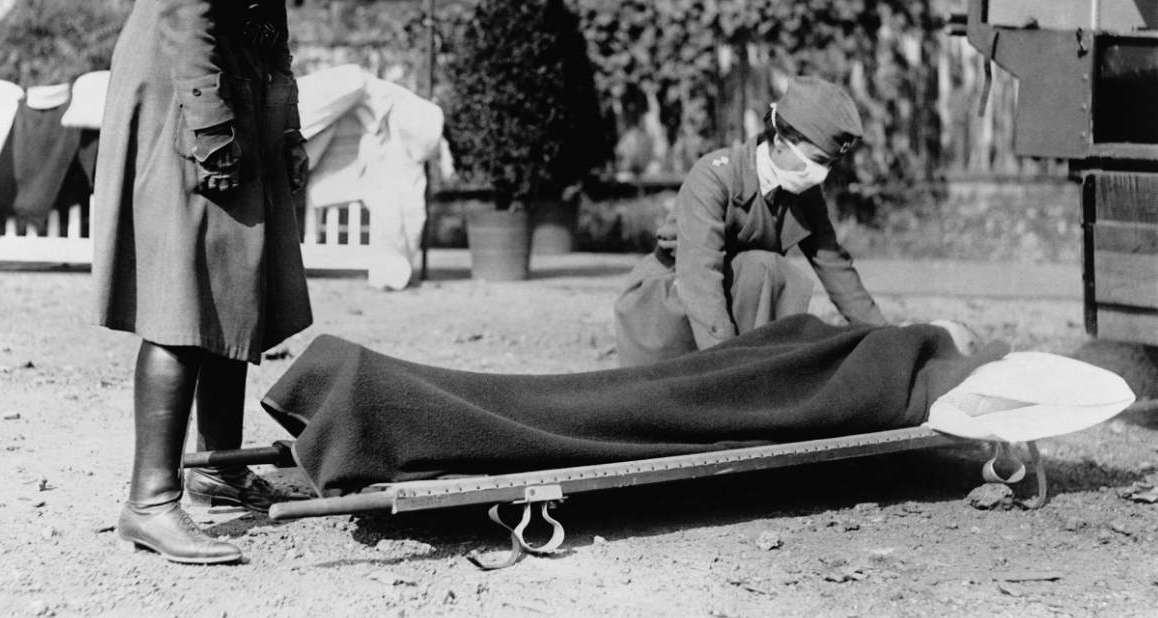p until World War I, the ravages of disease in wartime regularly claimed far more lives than bullets, bayonets and cavalry sabers. Many histories readily remember the two hundred thousand soldiers that died in battle in the American Civil War at places likes Cold Harbor and Little Roundtop, and less the four hundred thousand felled by diarrhea/dysentery, pneumonia, typhoid and other diseases.
But water-cooled machineguns, magazine-loading rifles and artillery that could rain death accurately and at a high tempo from miles away all combined in World War I to change that grim equation. Three-quarters of the roughly ten million soldiers killed in the war fell to man-made, mass-produced death machines rather than nature’s natural born killers.
The eleven million civilian casualties included a higher proportion to disease, but also deaths caused by famine and three million combat- or atrocity-related deaths.
Yet nature, in the end, would get the last laugh. As the Great War ground to a close in 1918, an influenza pandemic broke out killed between fifty and one hundred million people. (Those deaths are generally excluded from other disease-related deaths in World War I.) That means more people in one year died from the flu than in four years of non-stop fighting on World War I battlefields.
The “Spanish flu” as it became known probably wasn’t really Spanish. That just happened to be the one major country that didn’t actively censor news of the pandemic, such as the infection of King Alfonso XIII, because it was not at war.
That said, there’s no consensus as to where the true Ground Zero really lay. One analysis argues the outbreak began amongst U.S. soldiers at Camp Funston in in Haskell County, Kansas in March 1918.
A competing theory claims the flu strain originated in China and was passed on amongst the tens of thousands of laborers sent to assist France in the Great War. In turn European studies claim the virus caught hold in 1917 in a hospital in France or in Austria.
Read more: national interest
Ask me anything
Explore related questions





